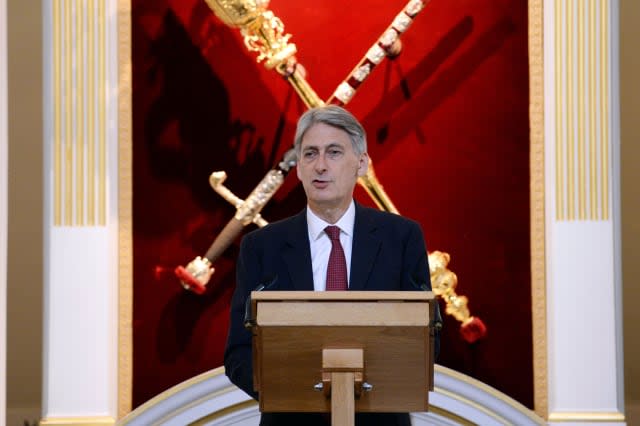Are taxes about to rise?

Taxes could be about to rise, as the government faces pressure to increase public spending. Ever since the Conservative Party came to power, they have based their policies on spending cuts and austerity, but recently there are growing signs that the electorate has had about as much cutting as it can stand. The government is going to need to find a new way to balance the books. Murmurs from the Treasury seem to indicate that tax hikes could be on the cards.
See also: Household spending power drops almost 2% in biggest fall for four years
See also: Five common money worries
Back in 2015, the first rebellion against austerity began, with a round of Tax Credit cuts defeated in the House of Lords, and abandoned in the Autumn Statement. It subsequently transpired that George Osborne managed to get some cuts through anyway at the same time, by slashing the little-understood 'income disregard' - but it was a sign that there was a limit to the cuts that the country can take.
Since then, the rumblings of disagreement have grown to a roar, as increasing numbers make their opposition known to cuts affecting everything from schools to the NHS and the pay of the emergency services. Now the Conservative cabinet has weighed in with their concerns.
Pressure
Justine Greening, the Education Secretary, has called for more school funding, while other cabinet members have weighed in on the issue of public sector pay. At the moment pay rises for the emergency services - along with the rest of the public sector - have been capped at 1% since 2013 and are set to be capped until 2020. The official line from Number 10 is that there are no plans to change the policy.
However, Boris Johnson has said that there's no reason why public sector pay could not be increased - provided it was done in a responsible way - and other cabinet members have told the press that the issue is under active discussion.
Tax
Chancellor Philip Hammond, has also shown a willingness to reconsider some austerity policies. In a speech on Monday night he said: "The British people are weary after seven years' hard slog repairing the damage of the great recession". However, he has strongly hinted that an end to austerity couldn't simply mean more borrowing - it would mean higher taxes.
In a speech, he said "The serious question to the electorate cannot be 'would you like us to tax someone who isn't you to pay for you to consume more?', but 'would you be willing to pay more tax to consume more public services?'"
The question of which taxes he has in mind is a whole new one. Hammond actually has the option of simply not bringing in tax cuts he has already promised. So, for example, the shifting of the higher rate tax band (at which people start paying 40p tax rather than 20p in the pound) was promised in the manifesto, but could be abandoned. At the moment, the plan is to move the band from £45,000 to £50,000, but the government could choose to leave it where it is.
National Insurance is another possible source of income. At the moment Class 2 National Insurance Contributions are set to be axed for the self-employed next year. Hammond could change this plan and leave it in place.
Then of course there's the personal allowance (the amount you can earn before paying tax), which has been on a steady path upwards since 2010. It's set to move to £12,500 by 2020, but Hammond could leave it where it is instead.
Lord Lawson has also mentioned fuel duty. This was scheduled to be raised every year, but has been frozen for a number of years now. Unfreezing the rises would generate some handy income for the government.
Hammond could also leave Corporation Tax where it is - rather than honour the manifesto promise to reduce it from 19% to 17% by 2020. At the moment, the plan is to cut it to the lowest rate of any developed economy - in order to attract business - but it could stay at 19% and remain internationally competitive.
Another low-hanging fruit that commentators have been discussing for years would be a change to tax relief on pension contributions. At the moment you get relief at the highest rate of tax you pay - so higher rate taxpayers get 40% relief, while basic rate taxpayers get 20%. It means that higher earners get the lion's share of the tax benefits. There have been a number of suggestions of moving to a single flat rate, and this could prove the catalyst.
But what do you think? Is it time to raise taxes to pay more for public services, or are our household finances already stretched to breaking point? Let us know in the comments.




